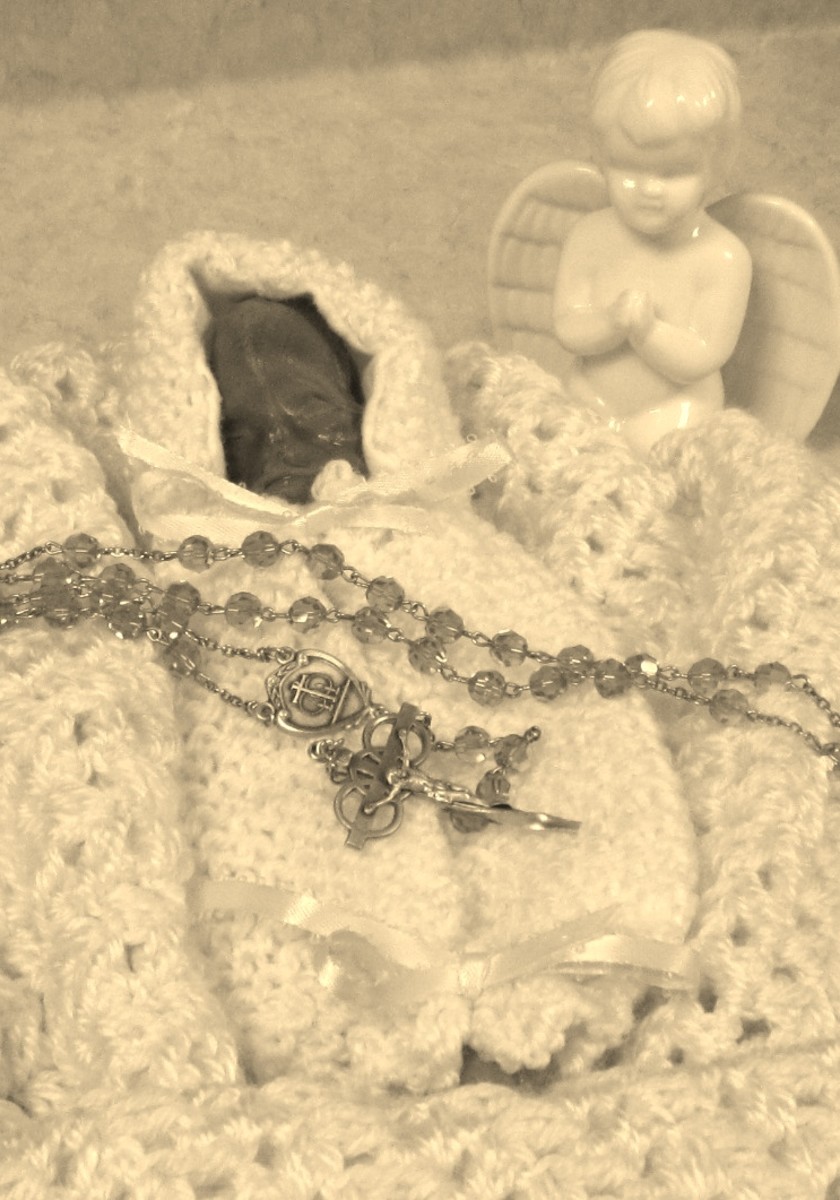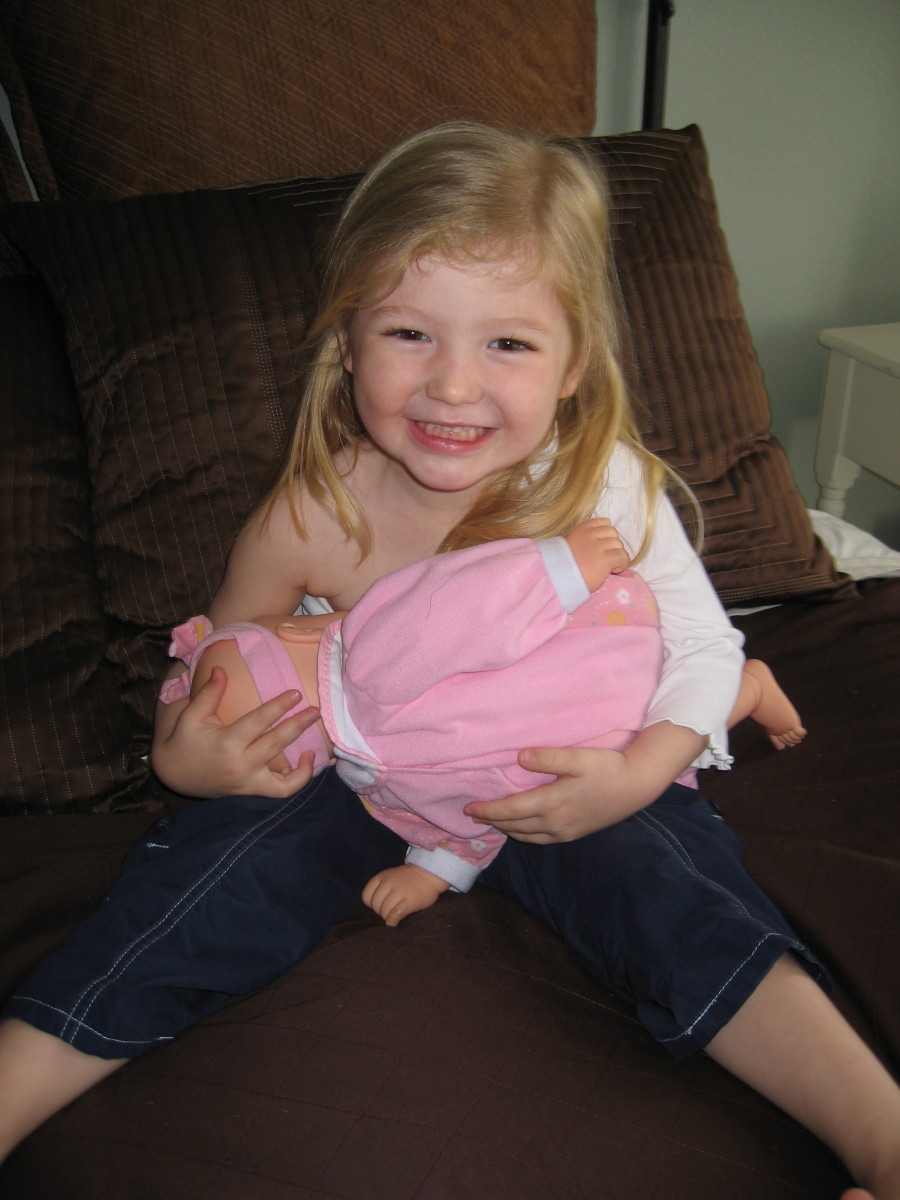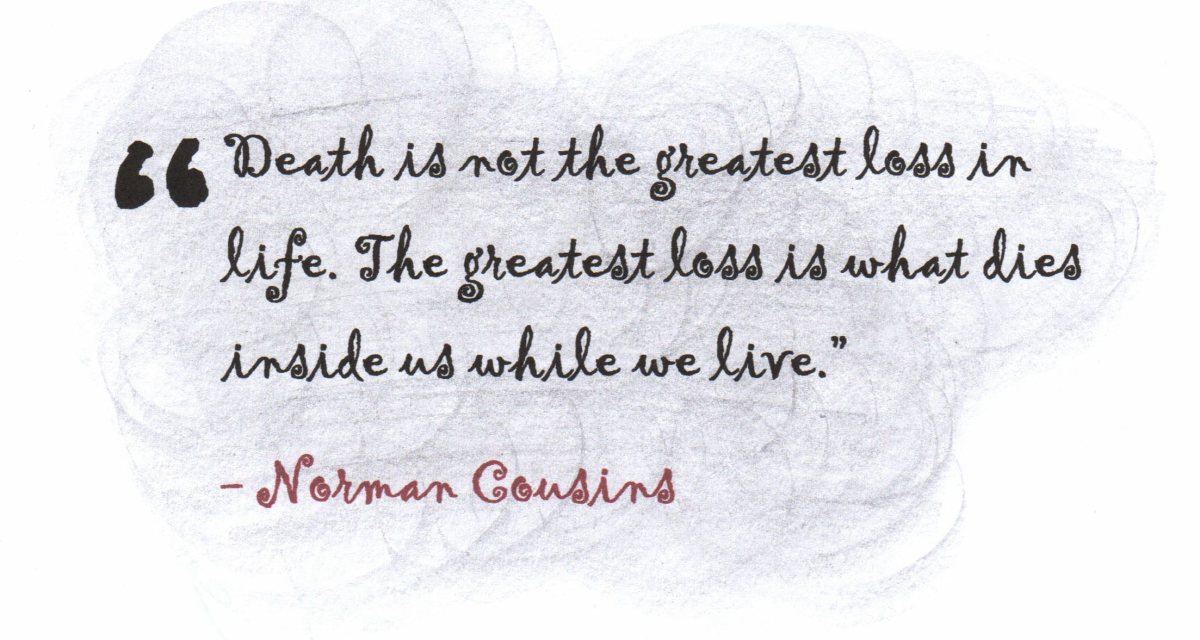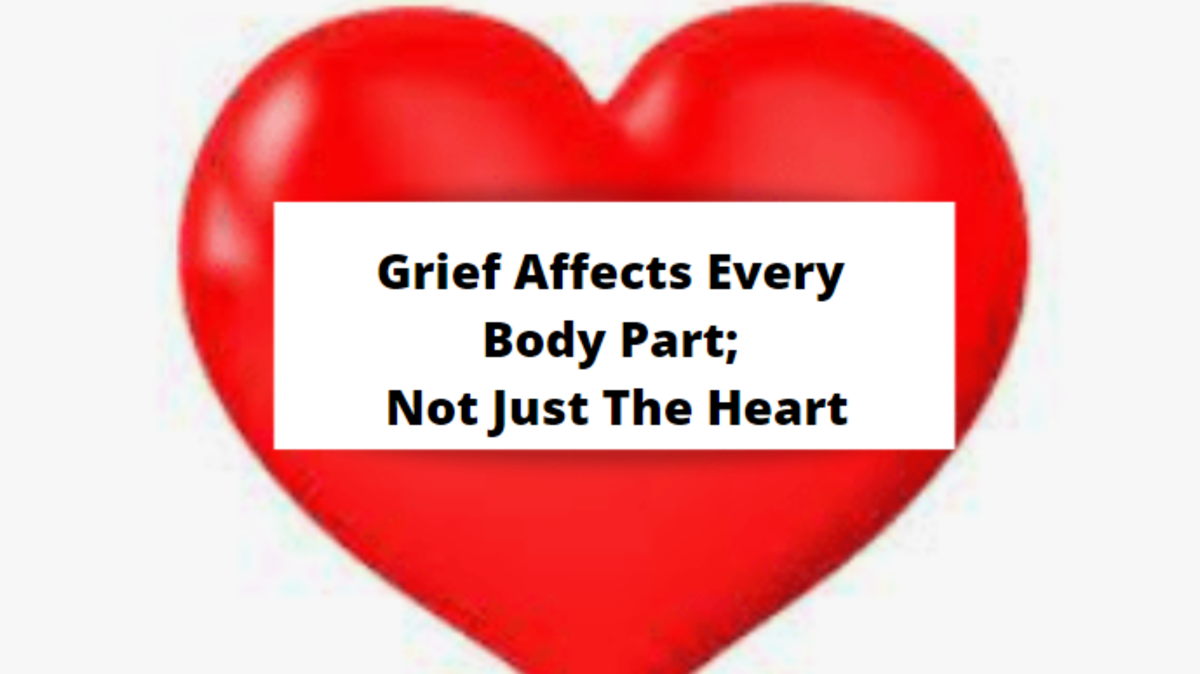How to Talk to Your Kids About Death

As much as we want to shield our children from the scary reality of death, we cannot forever protect them from the realization that people die, nor should we. Death is as natural a part of life as birth and if you frame death within the context that it is simply the transition from this life to the next, than it need not be a scary thing to talk about.

My Experience Talking to My Children About Death
Because death can be uncomfortable to talk about, many people avoid talking to their children about death until it slaps them in the face, but talking to your kids about death before someone they know or love has died is the best way to prepare them for this inevitable reality.
As a Catholic, I use All Saints and All Souls Day to talk about death with my children. Last year I couldn't find any books on the Holy Day so we borrowed Halloween library books about ghosts and I used them to teach the concept of the soul living on after death. I explained that when we die our soul, which is who we are, goes up to heaven and since we don't need our body anymore, it goes in the ground. We had many short conversations about this when reading the different books or when we would pass a cemetery. I kept the conversation light and very matter-of-fact. Soon when passing a cemetery, my three year old would exclaim, "Look, Mommy, rocks! That's where our bodies go when we die. Our souls go up, up, up and our bodies go there under those rocks."
Soon after that, we discovered a dying raccoon in our yard. Daddy had to "help the raccoon go to heaven," and we buried him in a corner of the yard. (We did not allow her to see any of this, and she does not know how daddy "helped him go to heaven.") We used the experience to reiterate that souls go up, up, up to heaven, and our bodies go in the ground because we don't need it anymore. My daughter was sad about the raccoon, and so we said a prayer, thanking God for the raccoon's life and what it taught us about life and death and asked that if animals were in Heaven to tell him hello for us.
We recently experienced the stillbirth of our sweet Jennifer Grace, and had to explain to our now four-year old that the sister she had been so excited to meet had died. We explained that we didn't know why, but that Jenni's heart had stopped beating and that she wouldn't be coming home from the hospital, that Jenni's soul was in heaven with God and that since she didn't need her body anymore, we were turning it into ashes. I was so thankful that we had the foresight to begin talking to our children about death before we needed to. Because my daughter already had a concept of death, she was more comfortable with the idea of Jenni's soul going to heaven.
We were given a book that imagines what children do in heaven and one about a big sister who's baby brother dies and sends them butterflies from heaven. We have read them a lot, using them to encourage her to ask questions and talk about Jenni in a way that she can understand. I encourage her to talk about and talk to Jenni, asking her to pray for us. She talks about how much she misses her sister and how excited she was to meet her, and we have the sweetest conversations about what Jenni might be doing right now in heaven. She likes to include Jenni in her prayers at night. We ask God to bless Jenni and send her our love. We ask Jenni to pray for us and we tell her we love her and can't wait to meet her one day in heaven.
I have found talking to my children about death to be rewarding and helpful for me as I go though my own grieving process. I hope the following tips encourage you and help you to feel more confident about how to have these conversations with your own children.
Talk to Your Kids About Death Before Someone They Know Dies
Help your kids understand the concept of death, whatever you believe it to entail, before someone they know dies by occasionally and age-appropriately talking about death as a natural part of life. Look for moments that allow the conversation to naturally turn to the subject of death or prepare for All Soul's Day or even Halloween by reading books and talking about death. Explain to your children that every person is a soul in a body. You could have them feel their arm, telling them, "This is your body, but you think and feel with your soul. When someone dies, their soul goes up, up, up to heaven and their body goes down in the ground. We bury the body in the ground in a cemetery (or turn it to ashes) because the person doesn't need it anymore."
Explain that babies are created and grow in their mommy's tummy until they are ready to be born. Babies are born and the grow into kids. Eventually they grow into adults and become grandparents. When it is time for us to go to heaven, our soul leaves our body and goes up to heaven. If your child sees a dead animal, you could explain that their died. Their body stopped working and their soul when to heaven.** If you are mindful you will find lots of moments that can be used to teach your children about death.
**Many people are nervous that this will traumatize their children. Of course every child is different, but I can assure you that my daughter is not afraid of death or afraid to see a dead animal from afar. Children learn from their parents what they should be afraid of. If you are comfortable with death, your children will probably be also. Keep your conversations light and short, gauging how well your child is handling the information and continuing on as your child shows you she is ready to learn more.
Avoid Using Euphemisms when Talking About Death
When talking to young children about death. avoid using euphemisms such as "Grandma passed away," "God took Grandpa up to Heaven." "Fido went to sleep," or "We lost the baby." Young children see the world very literally and may become afraid or not understand what happened. It is better to be honest and say that the person died.
"Grandma died yesterday. Her body stopped working and so her soul went up to heaven."
Encourage Your Children to Ask Questions
Encourage your children to ask questions by bringing the topic up frequently. As children process what has happened they may come up with questions they didn't have before, but not know when or how to ask them. Talk to your kids about the passing of your loved one often. Read stories about death and make connections between the story and what you believe about your loved one. Tell your child stories about their loved one and encourage him to talk about them as well. This shows your child that you are comfortable talking about it and give them time to process the information and realize any questions they might have.
Sometimes simply asking your child, "Do you have any questions?" isn't enough. Talk to your child about how you feel, "I really miss Jenni," or ask, "What do you think she is doing in Heaven?" "I am sad that Jenni isn't with us anymore." Some children, especially younger children may not have the words to express their questions or how they feel. Your questions and the feelings you express to them can help them to put words to their own questions and feelings.
Comfort Your Child with Your Own Beliefs About the Afterlife
When discussing the death of a loved one with your child, don't just talk about the fact that they died, assuming that if she wants to know more she will ask. Instead, be sure to comfort your child with images she can understand of heaven and your belief that you will be together again one day. When Jenni died, my daughter worried about who would take care of her sister in heaven. We imagined her playing with other children and being tucked in at night by Angels. We talked about how happy Jenni was to be in Heaven and that Jenni could hear us and loved us, but wasn't sad that she wasn't with us. I encouraged her to talk to her and to ask God to take good care of her. As Catholics, we believe that we can and should pray for our loved one's in purgatory and that our loved one's in heaven can pray for us. We talked how one day we will go to heaven too and spend forever getting to know her.
Allow Your Child to Grieve in His Own Way
Remember that every person grieves differently. You need to give your children space to grieve in their own way and support them as they journey through their grief. Remember that being open about your own grief will help your children work through their grief.
Younger children may become clingy or more needy as they work through their grief. Indulge their requests as you are able while gently encouraging their independence. Let them talk about the deceased whenever they need to. You don't need to have all the answers or tell them something profound in return. Hold their hand, hug them while they talk and just be there to listen and acknowledge their feelings.
My daughter asks for more cuddle time lately and wants me to hold her more. I think the extra physical touch comforts her. She often says, "Mommy, I am sad because I miss baby Jenni. She died and went to Heaven and I don't get to play with her."
I stop what I am doing and set her on my lap. "I know, sweetheart. I miss her too, but I am happy for her that she is having so much fun in heaven. Would you like to read a book about what children do in heaven? Let's tell her that we miss her and ask her to pray for us... What do you think she is doing in heaven right now? I think she is playing tag in the most beautiful flowers. Do you think she has met Noah yet?"
Be sure to talk about healthy ways to grieve. "When I feel sad about Jenni, I talk to God about how I feel. Let's talk to him now . 'God, we are so sad that Jenni is not with us anymore. Please give her our love and help us to remember how happy she is with you. We don't understand why she had to go so soon, but please help us to have peace about her death. Jenni, we love you and we miss you so much. Please pray for us that God will comfort us and pray that we will see you again in Heaven." Make sure your child knows that it is okay to cry or feel angry. Some children might find working out their anger via running helpful. Maybe drawing pictures or writing poems or journaling would help them to work out their grief.
Let your child be mad at God if he feels that way. Remember, God is Big. He can handle it. Encourage him to talk to God about his anger, just as you would expect him to talk to you when he feels angry with you. Give your child words to pray through his feelings. "Sometimes I have no words for God. I tell him, 'I am so mad at you!' or 'I have no words God, no words!'" Help him to pray, "God, I am so sad and angry that Jenni was taken from us. Why did you allow her to die? I don't understand and I want her back. Please comfort me and take away my doubts."
Don't be offended if your child doesn't want to share his feelings with you, but do set your child up with another adult they can talk to if they cannot talk to you about their grief. A school counselor, pastor, priest, or even a trusted aunt or uncle who can meet with your child on a regular basis to give him support.
What if You Aren't Sure What You Believe About Life After Death?
I think it is important to be honest with children. There is nothing wrong with telling you child that you don't know what happens after you die, but you shouldn't leave it at that, because as you just said, you simply don't know.
You can talk to your child about what the different religions think about the subject, "I don't know what happens when we die. Some people think we are reborn into new bodies, or that our souls become part of the earth's energy, and some people think that our souls go up to heaven to live forever. What do you think happens?"
Encourage your child to talk about what they think happens when people die and support them in that belief. You might even connect them with a pastor, priest or trusted family friend who can answer their questions.
Remember that you may not be sure what you believe in, and you may not even care what the truth is, but you cannot know for a fact that nothing exists. Don't take away the hope that your child may have regarding life after death.
As a Catholic, I believe that we cannot know who is in heaven or hell, barring a few exceptions like the saints, the Holy Innocents and children baptized either by water, desire or intent. I would never tell my child that a family member was not in heaven, but I can't be certain that all of our family members are in heaven either. We simply cannot know what happens on a person's deathbed. Instead we pray for them and maintain hope that we will see them again. If they are in heaven they do not need our prayers, if they are in Hell they cannot use our prayers, but if they are in purgatory, their souls are being prepared for heaven and our prayers can help them in that process. Because we do not know the state of their soul at death we certainly can have hope that they are in or on their way to heaven.
As an agnostic, leaning towards atheism, my friend simply told her son that she didn't know what happens when we die, but that some people, like papaw who is pretty sure we go to heaven to live with God. She was honest with her son without taking away his child-like faith and her son knows that his papaw will have answers to his questions that his mom cannot give him.
More Hubs About Death
- How to Get to Heaven in Christianity
If you want to goto heaven, repent of your sins, confess with your mouth that Jesus is Lord, and believe in your heart that God raised him from the dead. - How to Help Children Cope With Death and Loss
This hub gives more secular advice about helping a child grieve, and may be helpful for my readers who do not share my Christian or Catholic worldview. - How to deal with the death of a pet
A pet's death is a difficult but inevitable part of being a pet owner. Learn useful tips for coping with the loss of your pet, and for supporting your friends in their time of grief.
Relax and Just Do It
When asked what advice he had about talking to our children about death, our wise priest told my MOMS group that we simply needed to get comfortable talking about death and the rest would come. He explained, "If you are uncomfortable talking about death, you will have a hard time talking to your children about death and your children will be uncomfortable thinking and talking about death." He spent the rest of the hour describing his experiences with death and encouraging us to rethink our fears and misconceptions about death.
So I will leave you with the same advice. The more comfortable you become around death, the better you will be able to teach your children about it. At the end of the day, you simply have to take a deep breath and start talking. You will find that each conversation feels a little more natural, and you are able to explain things a little bit better with each conversation.
Don't overthink it. Speak to your children from your heart and you will be okay :-)
© 2014 Sarah










